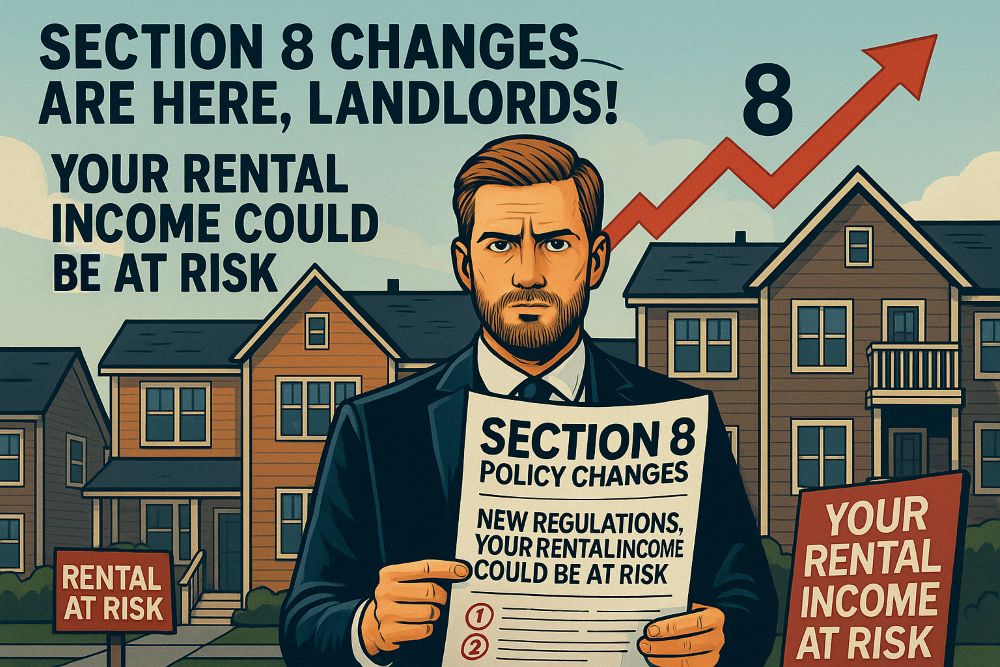
Author: Mark Ainely | Partner GC Realty & Development & Co-Host Straight Up Chicago Investor Podcast
If you’re a landlord in Chicago renting to Section 8 tenants, this update matters. I’m not here to scare you—but I don’t want you getting blindsided either.
We’re about to hit a big shift in the Housing Choice Voucher (HCV) Program, and it’s going to hit your bottom line if you’re not prepared.
Starting May 1, 2025, HACC (the Housing Authority of Cook County) is making some serious changes to how Section 8 works—voucher sizes are shrinking, payment standards are dropping, and rent increase approvals are going to get harder.
If you're a landlord or property manager in Cook County and you’re not ahead of this, you could be stuck with rent gaps, vacancies, or tenants who simply can’t afford the new numbers. It’s not doom and gloom—but you’ve got to know what’s coming so you can adjust now and protect your rental income.
Let’s walk through what’s changing—and what you need to do to stay profitable.
What happens when a Section 8 voucher size is reduced in Chicago?
HACC is now giving out smaller vouchers. They're using a new rule: 2 people per bedroom, no matter their age or relationship.
So, some families will now qualify for fewer bedrooms. That means they’ll need to pay more out of pocket to stay in your unit.
If they can’t afford it, that could affect your rent payments.
Always confirm the tenant’s updated voucher size before signing a lease.
Are Section 8 payment standards going down in 2025?
Yes. HACC will use 2024 rates starting May 1 for new leases or families moving.
This means they’ll pay less rent support, and tenants may have to make up the difference—up to 40% of their income (if they qualify).
Check if your rent fits under the updated limits before marketing to HCV tenants.
Can Section 8 tenants in Cook County move mid-month?
No. Going forward, HACC won’t allow mid-month moves. The lease has to start on the first day of the month for current participants.
If tenants move in earlier, they’ll have to pay that rent themselves—HACC won’t cover it.
Make sure your lease starts line up with HACC’s policy to avoid missed payments.
Can Section 8 tenants move to a more expensive unit in 2025?
Not always. HACC may deny moves to units that require a higher subsidy than what they’re currently paying.
They’ll only make exceptions if the family size changes or someone has a disability.
Just because a tenant wants to move in doesn’t mean it’ll get approved—check with HACC first.
Will my rent increase be approved by HACC?
Maybe. If your rent increase means the tenant’s share goes too high, HACC might deny it.
Even if your expenses are up, HACC wants to be sure the tenant can afford their portion.
Before asking for a rent raise, check that the tenant qualifies to pay the difference.
What should Chicago landlords do about these Section 8 changes?
These updates are a lot—but if you plan ahead, you’ll be fine.
Review lease terms and make sure move-in dates start on the 1st
Confirm voucher sizes before approving tenants
Price your rent within the new limits
Be smart with rent increases—check affordability first
If this sounds like a lot to keep track of, we can help. Our team at GC Realty works with Chicago landlords every day to manage Section 8 rentals the right way—without losing rent or making costly mistakes.
Don’t Let Section 8 Changes Eat into Your Rent
Not sure how the 2025 HACC changes will impact your property?
Start with our Free Rent Analysis — we’ll help you figure out if your rent is still competitive under the new rules.
And if you’re ready to talk strategy, compliance, or just how to protect your cash flow…
We'll help you get the returns you deserve.

 Vendor Portal
Vendor Portal

%20(1)%20(1).png)
%20(3).png)
